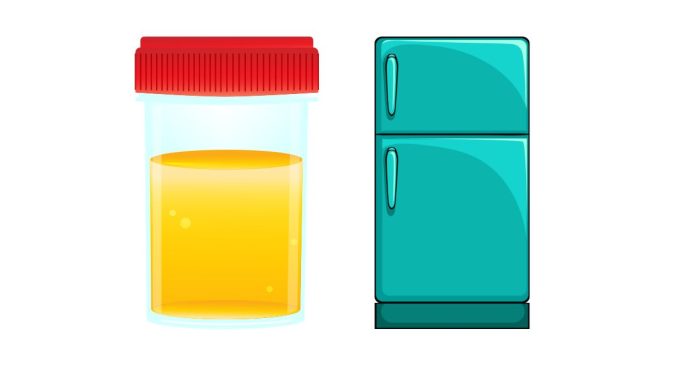When preparing for a drug test, some individuals might wonder about the best ways to store urine samples to ensure they remain valid. One common question that arises is: How long can urine be stored in the refrigerator for a drug test? Whether you’re planning ahead or need to store a sample for a short period, it’s important to know how refrigeration impacts the urine and its suitability for testing.
In this blog post, we’ll explore how long urine lasts in the fridge, factors that influence its stability, and tips to keep it viable for a drug test.
How Long Does Urine Last in the Refrigerator?
Urine can be stored in the refrigerator for a short period—typically up to 24 to 48 hours—without significant degradation. Cold temperatures slow down the natural processes that could cause the sample to break down or become contaminated. However, if stored longer than this, bacteria and other organisms may begin to grow, affecting the sample’s integrity.
It’s important to note that while refrigeration helps to preserve urine for a short time, it doesn’t stop the natural changes that occur in the sample. Chemical reactions, such as the breakdown of compounds like creatinine, might still occur, which can potentially affect the results of a drug test.
What Factors Affect Urine’s Stability in the Fridge?
Several factors influence how long urine remains stable in the refrigerator:
- Temperature: The colder the fridge, the longer the urine can stay preserved. Ideally, urine should be kept at temperatures between 34-39°F (1-4°C) to avoid bacterial growth and chemical changes.
- Time: As mentioned, 24 to 48 hours is generally safe for storage. The longer you store the sample, the more likely it is that its chemical composition could change.
- Container: The container you use to store the urine also plays a role in its preservation. It’s essential to store urine in a clean, tightly sealed container to prevent contamination or leakage.
How to Safely Store Urine for a Drug Test
If you need to store urine for a drug test, follow these best practices:
- Use a Clean, Sealed Container: Ensure the container is sterile and properly sealed to avoid any contamination.
- Refrigerate Immediately: As soon as the sample is collected, place it in the refrigerator to preserve its integrity.
- Do Not Freeze: While refrigeration is helpful, freezing urine can damage the sample, making it unsuitable for testing.
- Limit Storage Time: Ideally, use the urine sample within 24-48 hours to avoid any changes that might affect the test results.
Signs That Urine is No Longer Viable
After a period of storage, you may notice certain changes in urine that indicate it’s no longer suitable for a drug test. These signs include:
- Changes in color or odor: A strong, foul odor or a dramatic change in the color of the urine could be signs of bacterial contamination or chemical breakdown.
- Presence of sediment: If sediment forms in the urine, it could mean that the sample has started to degrade or that bacteria have started to grow.
- Changes in temperature: Most drug tests require the urine sample to be at a specific temperature (usually around body temperature, 90-100°F or 32-38°C). If the urine is too cold after refrigeration, it may not be accepted.
In summary, urine can typically be stored in the refrigerator for up to 48 hours without significant changes that would affect a drug test. However, the longer it sits, the more likely it is that bacteria and other factors could impact its viability. To ensure the sample is valid and accurate for testing, it’s best to store it in a clean, sealed container in the fridge for a short period and to use it as quickly as possible.
If you need to store urine for a longer duration, it’s advisable to explore professional options, such as preservation kits or consulting with a medical professional, to ensure the sample remains intact and uncontaminated for testing purposes.


